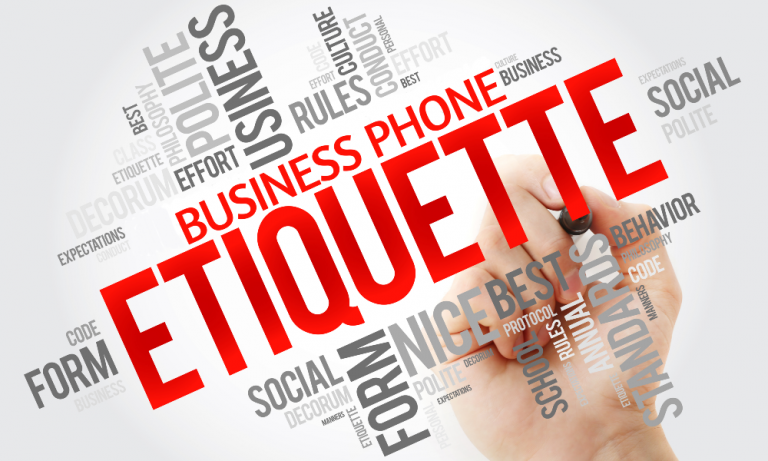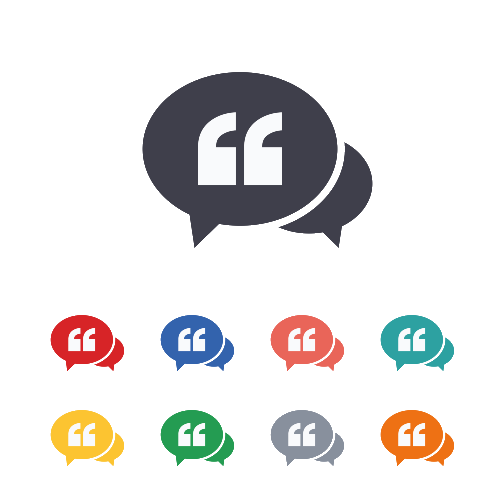
What makes people do things on the phone that they would never do in front of someone in real life? From yawning loudly to sounding bored, these practices and others add up to seriously poor phone etiquette. And, if a recent survey about the phone habits of British professionals is anything to go by, specific sectors are failing to make business phone calls a pleasant experience.
What is the meaning of phone etiquette?
Phone etiquette refers to rules and guidelines that govern how we communicate over the phone respectfully, professionally, and effectively. It includes all aspects of a phone conversation, including the tone of voice, clarity of speech, polite greetings and farewells.
It's worth noting that in a business context, good business phone etiquette is not just about being polite-it's a key tool in enhancing customer satisfaction and upholding a professional image for your company. This is a point that the survey's findings strongly support.
According to the survey, the sectors with the worst business phone etiquette are:
- HR and Recruitment Agencies
- Media, PR and Marketing Agencies
- Lawyers
- Doctors, Nurses and Dental Receptionists
- Accounts Departments
Would you have guessed those industries would make the list? Surprisingly, sectors that depend on a positive public image, like recruitment and PR, need better phone etiquette.
Regardless of the type of company, it's crucial to recognise that poor phone manners can lead to significant problems. Every time a person chooses to work with your business, they've usually made a thoughtful decision. They're observing everything about your business, from the first email or phone call. This is why phone manners matter. The most significant phone etiquette fails highlighted in the survey should serve as a wake-up call.
Talking to someone else while on the phone
 |
Imagine someone conversing with someone else when they're meant to be talking to you. Not good, is it? It's no wonder most people aren't going to be happy when they hear you chatting with someone in the office when they're on the phone with you! According to the survey, one of the biggest phone call bugbears for people is feeling like their call is unimportant and they aren't valued. As a business, you want to make your callers feel the opposite of that. This is not just about following rules, it's about showing respect and empathy towards your callers. |
The distraction factor
In addition to the poor phone etiquette outlined above, most people feel somewhat offended when the person on the other end of the phone sounds distracted or as if they are thinking about something else. The caller is trying to share their issue with you or gain valuable advice, and they can tell you are drifting off into your lovely daydream. Or you may be having a quick check of Facebook on the computer while they are talking to you.
With phone technology becoming ever higher quality, the risk is the other person will hear those sounds and work out you're checking your social media when you're supposed to be helping them. Again, this is another great way to make people feel they aren't valued. No wonder it scores so highly on the list of phone activities people love to hate in the survey.
Not that daydreaming is something you shouldn't do. As we've said before, relaxing is important for staying at your best as a business owner. Plus, daydreaming is thought to be great for business success. This is fortunate because the average human apparently spends three hours a week daydreaming!
You should save this kind of activity for your lunch break, not when you're on the phone with your customers!
Hold that thought
"You're on hold". Is this or is this not one of the most dreaded phrases anyone can hear over the phone? The survey suggests it is. We can't escape the fact that being put on hold is a fact of life. But there are ways to do this properly - like warning the customer when it's going to happen and not using it as a default way of responding to high volumes of calls. To keep your customers from experiencing the frustration of being placed on hold, look for more efficient ways to manage phone calls to your business.
The dreaded interruption
We all want to be heard. The customer has made an effort to call you. This is their time to have their say. It's unsurprising that 42% of people taking the survey said being interrupted really got their blood boiling.
The intention behind the interruption may be a positive one. You may want to ask some quick questions rather than having to listen to every detail of the caller's issue. You may be in a hurry and under pressure to answer another call or to deal with something else. But there are ways to do this positively and politely.
Interrupting someone suggests you believe you're more important than them. The other person won't miss that message, and it's not likely to make the best impression!
Don't make phone time your snack time
Those companies where staff think nothing of nibbling on a cheese pasty or a sandwich over the phone? The survey shows that it doesn't score them any points with customers! After all, who wants to hear someone chewing down the phone? It's not the most pleasant sound and there's no way it can ever seem professional – unless you're a food taster or groceries buyer, perhaps. So, keep the Scotch eggs or the sushi for when the phone call is safely over. And be prepared to put the egg sarnie down as soon as you hear the phone ring. Again, unless you have planned a lunch meeting with your clients, you wouldn't be eating with them anyway, so why attempt to do so over the phone?
Poor phone etiquette, such as letting the phone ring for too long, using an unfriendly or aggressive tone of voice, or failing to call someone back as promised, can all erode your caller's trust in you and your business. Each of these habits, as highlighted in the survey, can significantly impact your professional image and customer relationships.
Great phone etiquette equals good business sense
So, how do you prevent these phone etiquette faux pas from damaging your business before your potential customers are even signed up? Well, as with many good things, it is common sense. The golden rule is to act as if the person you're speaking to is in front of you. Then, behave accordingly.
| Stay focused throughout the call, listen, engage appropriately with their emotional state, and never nibble on your lunch while they talk to you. Of course, a lack of time or capacity may mean you're not able to give customer calls the attention and focus they deserve. Because of this, it may be worth considering asking for support from an external organisation with expertise in making answering business calls as smooth and productive as possible. For more tips on great phone etiquette, check out this handy guide on Hubspot. |
 |
Remember that while you might not be paying full attention to a call, the person at the other end of the phone may be. And, as the survey shows, they are making a conclusion about your business based on the experience. Remember that old saying "Manners maketh man"? Well, good phone manners maketh the business.
Need to know more about the potential
risks of business phone calls?
Why not take a look at Answer4u's brief guide
Categories
- 24 Hour Call Answering Service (6)
- After Hours Call Answering (5)
- After-Hours Call Answering Service (6)
- Answer-4u (11)
- Artificial Intelligence (5)
- BPO (5)
- Business (66)
- Business Grants (3)
- Business Growth (4)
- Business Owner (6)
- Business Strategy (2)
- Call Diversion (6)
- Call Handling Service (13)
- Charity (2)
- Christmas (6)
- Customer Experience (5)
- Customer Satisfaction (3)
- Customer Service (26)
- Customer Services (8)
- Decision Making (3)
- Diary Management (3)
- Digital Marketing (16)
- Disaster Recovery (5)
- EntrepPhase (7)
- Entrepreneurs (7)
- Finance (2)
- Funding (3)
- HR (6)
- Infographic (1)
- Inspiration (2)
- Leadership (4)
- Marketing (15)
- Marketing Strategy (2)
- Networking (2)
- Other (4)
- Outsourcing (14)
- Phone Etiquette (9)
- Productivity (6)
- Property Management (3)
- Recruitment (7)
- Self Improvement (2)
- Small Business (14)
- SME (4)
- Staff Training (2)
- Start-Up (9)
- Technology (3)
- Telephone Answering (15)
- Time Management (4)
- Virtual Assistant (3)
- Virtual Receptionist (12)
- Workforce (9)
- Working Environment (9)
- Workplace (28)





